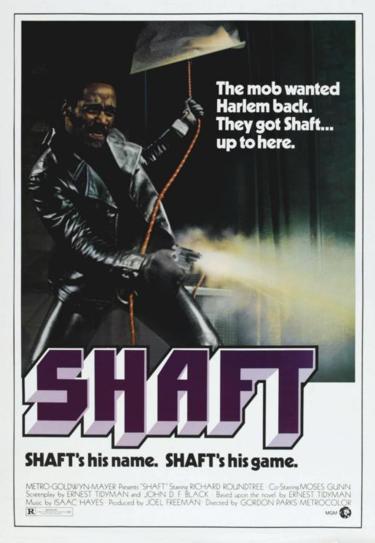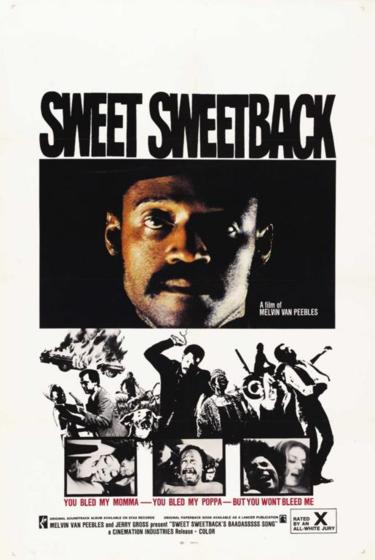Was Shaft Nearly Played by a White Actor in the First Shaft Film?
Here is the latest in a series of examinations into urban legends about movies and whether they are true or false. Click here to view an archive of the Movie urban legends featured so far.
MOVIE URBAN LEGEND: Shaft was originally going to star a white actor.
Shaft, directed by Gordon Parks and starring Richard Roundtree as the titular private detective, was a massive box office smash upon its release in 1971 and became the face of what was later referred to as “blaxploitation” films (I’ll let you judge whether you feel it qualifies as “blaxploitation”). The film, which won an Academy Award for Best Song for its theme (written and performed by Isaac Hayes), was selected for preservation in 2000 in the United States National Film Registry by the Library of Congress for being “culturally, historically, or aesthetically significant.”

For years, though, legendary blaxploitation producer and director Melvin Van Peebles has told the story of how Shaft was originally not going to star Richard Roundtree, but the title detective was going to be played by a white actor! Here’s a New York Press blog article that sums up Van Peebles story well:
It’s been almost 40 years since the box office success of Sweet Sweetback’s Badasssss Song (1971), the first-ever independent film to profit commercially and what Van Peebles claims, “changed everything” in the movie making industry. Sweetback boosted the cinematic black image and influenced the lead in films like Shaft, whose black protagonist was originally cast as a white character.

That’s what you’ll generally see told in regards to this story, that the unexpected sucess off Van Peebles’ independent release, Sweet Sweetback’s Badasssss Song, about a young black man who stands up against white authority, changed the course of Shaft’s history. Sweet Sweetback’s Baadasssss Song is undeniably an important film. It clearly influenced a number of blaxspolitation films (although, much more so than Shaft, Van Peebles’ film is definitely not an exploitative film – the knockoffs of it, though, were) and, more importantly, it showed that you could have a hit film not only written and directed by black filmmakers (which was not necessarily in doubt at the time, as Gordon Parks had already had success as a director) but that you could have a hit film produced and financed by black people, as well. Comedian Bill Cosby loaned Van Peebles the last $50,000 he needed to make the film. So yes, Sweet Sweetback’s Badasssss Song is an important film. However, I believe Van Peebles is overstating its influence upon the film Shaft.
First of all, Ernest Tidyman’s novel, Shaft, which the film was based on, starred a black private detective. Since one of the most striking aspects of Shaft is the very fact that it IS about a black private detective, it seems hard to believe that Metro-Goldwyn-Mayer would have optioned the book only to change the race of its title character. However, to be honest, I cannot say for sure that they would not do such a thing. If they liked the story well enough, perhaps they would have done so.
No, the more important reason as to why Van Peebles is almost surely mistaken in how influential his film was was the fact that Shaft was already well into production by the time Sweet Sweetback’s Badasssss Song was released. Sweet Sweetback hit theaters on April 23, 1971. Shaft hit theaters on July 2, 1971. Richard Roundtree was already cast as Shaft well before Sweet Sweetback was released. Contemporary articles about Shaft in Ebony in June 1971 made it clear that Shaft’s release had no connection to Sweet Sweetback. Now, the success of Sweet Sweetback most likely gave Shaft more attention, which surely helped the film be a success, but it did not get the film made and it did not get the film changed from white actors to black.
So with that in mind, I’m going with the legend as….
STATUS: False
Thanks to Pauline Pechin for the New York Press article and thanks to Ebony (author uncredited) for their spotlight on the filming on Shaft from June 1971.
Feel free (heck, I implore you!) to write in with your suggestions for future installments! My e-mail address is bcronin@legendsrevealed.com.






Most definitely false. Filming of Shaft was completed before Sweet Sweetback was released. My book “The World of Shaft” outlines the history of Shaft in print and on screen.